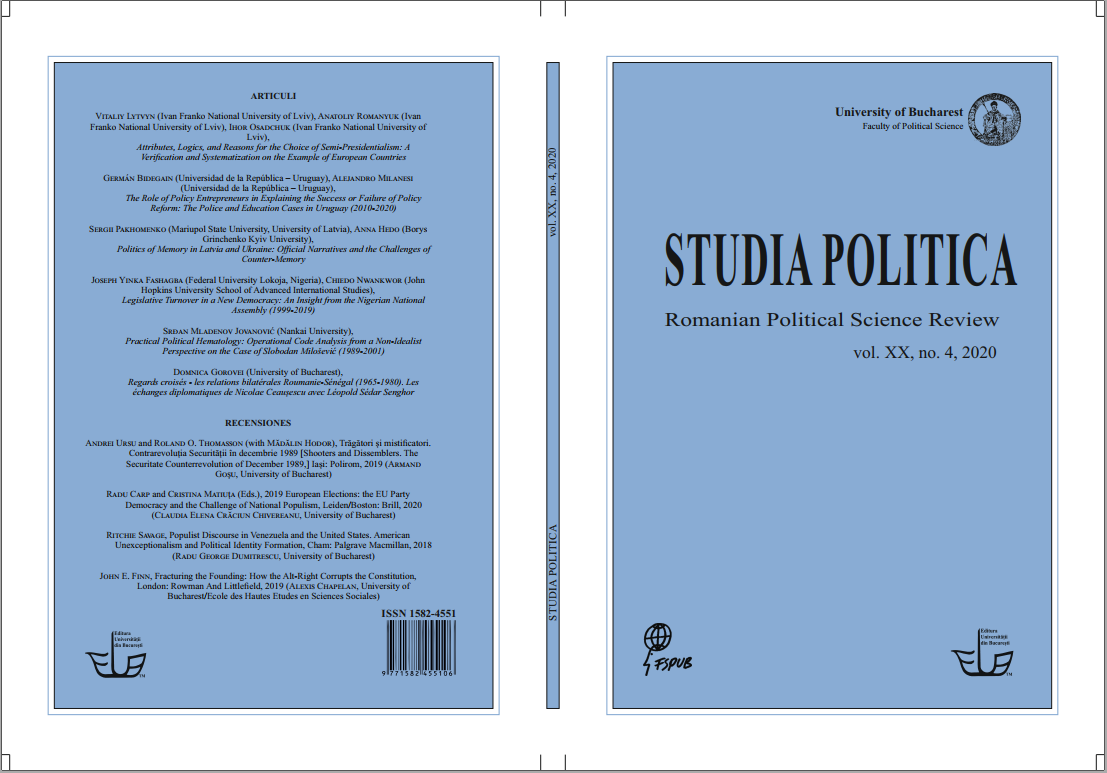Politics of Memory in Latvia and Ukraine: Official Narratives and the Challenges of Counter-Memory
Politics of Memory in Latvia and Ukraine: Official Narratives and the Challenges of Counter-Memory
Author(s): Sergii Pakhomenko, Anna Volodymyrivna HedoSubject(s): Politics / Political Sciences, Editorial
Published by: Editura Universităţii din Bucureşti
Keywords: Politics of memory; narratives; Latvia; Ukraine; decommunization;
Summary/Abstract: This article provides a comparative analysis of the national cases of mnemopolitics of Latvia and Ukraine. The authors examine the historical politics of Ukraine and Latvia through the prism of two conceptual approaches - the “nationalizing” state of Rogers Brubaker and the “memory regimes” of Michael Bernhard and Jan Kubik. The article demonstrates how two opposite narratives compete and coexist in both countries - the official national-centric and Soviet counter-memory narratives. In Latvia, the Soviet narrative was replaced beyond the bounds and acquired a pronounced ethnic shell acting through the Russian-speaking community, becoming completely informal. At the same time, the presence of a significant part of the Russian-speaking population with its own identity and collective memory, as well as the activation of the historical policy of the Russian Federation with its revisionist view of the history of the Baltic states, creates a real threat to the historical memory and identity of Latvia and turns them into security objects. In Ukraine, two narratives until 2014 demonstrated both competition and a strange symbiosis in both formal and informal commemoration. The hybrid war of Russia against Ukraine, in which the technology of manipulating via historical memory was actively used, caused measures to securitize the Ukrainian national narrative (laws of decommunization), its strengthening and updating. However, the volatility of the state strategy in the historical memory, its dependence on the change of power, do not exclude a return to ambivalence and uncertainty in the politics of memory.
Journal: Studia Politica. Romanian Political Science Review
- Issue Year: 20/2020
- Issue No: 4
- Page Range: 525-548
- Page Count: 24
- Language: English

